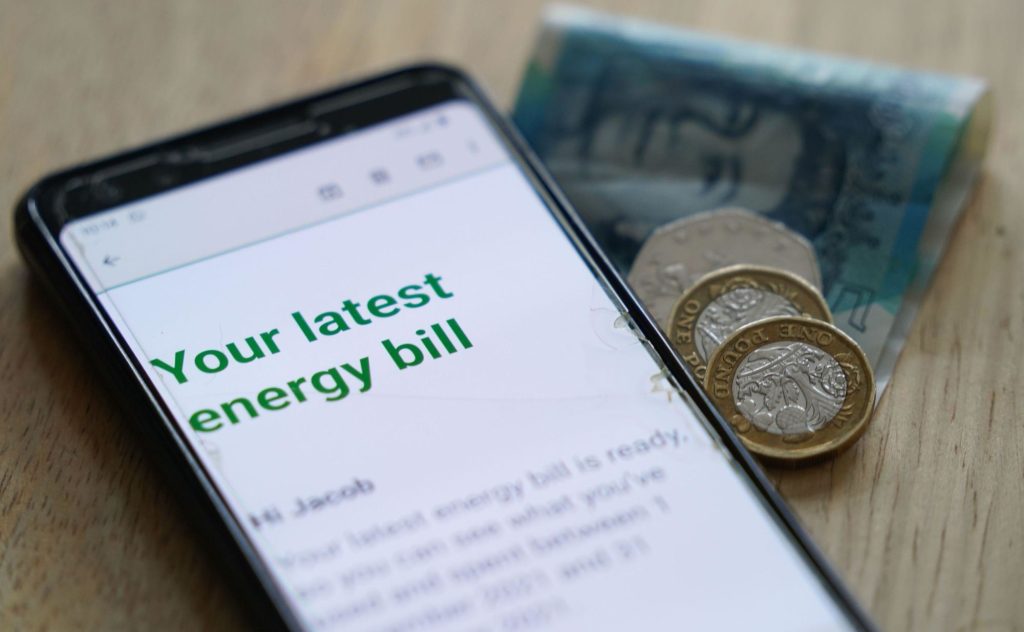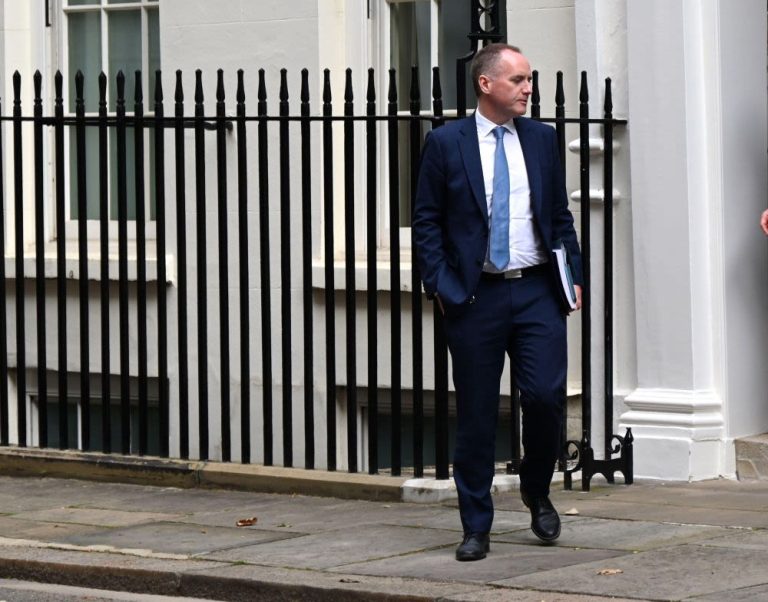
3CNM3G2 File photo dated 03/02/22 of an online energy bill. A targeted social tariff offering discounted energy bills to those who need it most could lift millions out of fuel poverty in England and Wales, according to a report. Issue date: Monday September 22, 2025.
The UK government is reportedly weighing options to adjust VAT and levies on household energy bills as part of its strategy to tackle the ongoing cost-of-living crisis. According to multiple sources cited by PoliticsHome, these potential changes are “on the table” as Chancellor Rachel Reeves finalises her Budget plans for 26 November.
A Budget Aimed at Easing Household Budgets
In a Downing Street address on Tuesday, Chancellor Reeves emphasised that the upcoming Budget would focus on “improving the cost of living” without reintroducing austerity measures. She also warned that “each of us must do our bit” to reverse “years of economic mismanagement” under previous administrations—comments widely interpreted as a hint that tax rises could feature alongside relief measures.
With UK energy prices among the highest globally, many households continue to struggle. The Ofgem price cap rose 2% in October to £1,755 for a typical household—up from £1,084 in summer 2021, before the impact of the Ukraine war sent global energy costs soaring. Unpaid bills and system fees are estimated at around £4.4 billion, highlighting the urgent need for targeted relief.
Scrapping VAT: A Straightforward, But Uneven, Measure
One option under consideration is reducing or abolishing the 5% VAT currently applied to energy bills. Advocates argue that this quick fix would immediately lower bills for millions of households. When asked on the BBC, Energy Secretary Ed Miliband confirmed that the government is indeed “looking at all of these issues.”
However, critics warn that cutting VAT primarily benefits those with larger energy consumption—typically wealthier households in larger homes—while doing little for lower-income families who already use less energy. Economist Tim Leunig described the proposal as “a terrible idea” in The Guardian, arguing it could also reduce incentives to conserve energy at a time when net-zero targets demand greater efficiency.
Rethinking Levies: From ECO to the Renewables Obligation
Beyond VAT, ministers are examining changes to mandatory levies that fund energy efficiency and renewable projects:
Any adjustment to these levies would require alternative funding sources, potentially through general taxation or targeted duties on high-emission industries rather than household energy users.
Funding Shift: Taxation versus Bills
As levies generate billions for green initiatives, transferring this burden off energy bills and onto the Treasury’s budget track could offer dual benefits: maintaining investment in efficiency and renewables, while directly lowering consumer costs.
Under this model, households would see reduced line items on their bills, but taxpayers would underwrite the levies through income tax receipts or new environmental levies on corporations. Such a shift, however, risks pushing costs onto public finances at a time when the deficit remains a central concern.
Political and Economic Context
Rachel Reeves’ remarks on “economic mismanagement” have heightened expectations that the Budget will include both relief measures and revenue-raising steps. With inflation still above target and public sector borrowing under scrutiny, the Chancellor faces a delicate balancing act: easing pressure on families without undermining fiscal credibility.
Downing Street has not ruled out any policy, but a Treasury spokesperson told PoliticsHome: “We do not comment on speculation around future changes to tax policy outside of fiscal events.” This leaves open the possibility that VAT cuts, levy reforms, or a combination of both could form part of a wider package aimed at shielding households from runaway energy costs.
Expert Warnings and Looking Ahead
While reducing VAT or adjusting levies could offer immediate relief, experts caution that such steps must be paired with long-term strategies to boost energy efficiency, increase renewable capacity, and encourage demand reduction.
Commentators also stress the importance of targeting relief at the most vulnerable: a blanket VAT cut risks overspending on high-income households, whereas a more nuanced approach—such as means-tested VAT exemptions or targeted levy relief—could do more to protect those in fuel poverty.
With the Budget just weeks away, all eyes are on Chancellor Reeves. Whether she opts for a broad VAT reduction, levy reform, or a bespoke mix of measures, her decisions will signal the government’s priorities in tackling both the immediate cost-of-living crisis and the UK’s transition to a cleaner energy future.





